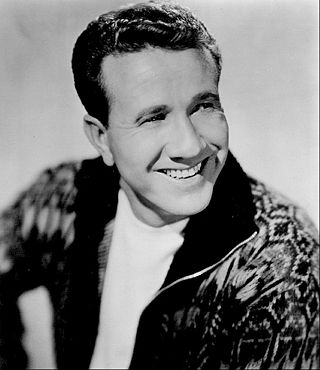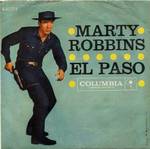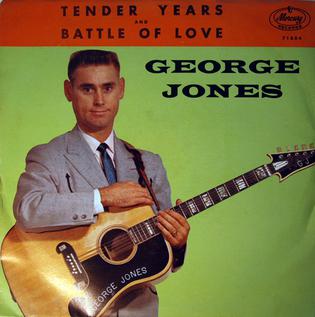Related Research Articles

Martin David Robinson, known professionally as Marty Robbins, was an American singer, songwriter, multi-instrumentalist, and NASCAR racing driver. Robbins was one of the most popular and successful country and western singers for most of his nearly four-decade career, which spanned from the late 1940s to the early 1980s. He was also an early outlaw country pioneer.

Michael Martin Murphey is an American singer-songwriter. He was one of the founding artists of progressive country. A multiple Grammy nominee, Murphey has six gold albums, including Cowboy Songs, the first album of cowboy music to achieve gold status since Gunfighter Ballads and Trail Songs by Marty Robbins in 1959. He has recorded the hit singles "Wildfire", "Carolina in the Pines", "What's Forever For", "A Long Line of Love", "What She Wants", "Don't Count the Rainy Days", and "Maybe This Time". Murphey is also the author of New Mexico's state ballad, "The Land of Enchantment". Murphey has become a prominent musical voice for the Western horseman, rancher, and cowboy.

"El Paso" is a western ballad written and originally recorded by Marty Robbins, and first released on Gunfighter Ballads and Trail Songs in September 1959. It was released as a single the following month, and became a major hit on both the country and pop music charts, becoming the first No. 1 hit of the 1960s on both. It won the Grammy Award for Best Country & Western Recording in 1961. It is widely considered a genre classic for its gripping narrative which ends in the death of its protagonist, its shift from past to present tense, haunting harmonies by vocalists Bobby Sykes and Jim Glaser and the eloquent and varied Spanish guitar accompaniment by Grady Martin that lends the recording a distinctive Tex-Mex feel. The name of the character Feleena was based upon a schoolmate of Robbins in the fifth grade, Fidelina Martinez.
"The Ballad of High Noon" is a popular song published in 1952, with music by Dimitri Tiomkin and lyrics by Ned Washington.
"(Ghost) Riders in the Sky: A Cowboy Legend" is a cowboy-styled country/western song written in 1948 by American songwriter Stan Jones.
"All the Way" is a song published in 1957 by Maraville Music Corporation. The music was written by Jimmy Van Heusen with lyrics by Sammy Cahn.
"Ringo" is a popular song written by Don Robertson and Hal Blair. It was a hit single for Canadian-born actor Lorne Greene in 1964. It reached #1 on the U.S. Billboard charts on December 5, 1964, as well as garnering the same spot on the "Easy Listening" chart, where it retained the position for six weeks. The single also peaked at #21 on the Hot Country Singles chart. In Canada, it hit #1 on the RPM top singles chart on December 7, 1964.

Gunfighter Ballads and Trail Songs is the fifth studio album by Marty Robbins, released on the Columbia Records label in September 1959 and peaking at number 6 on the U.S. pop albums chart. It was recorded in a single eight-hour session on April 7, 1959, and was certified Gold by the RIAA in 1965 and Platinum in 1986. It is perhaps best known for Robbins's most successful single, "El Paso," a major hit on both the country and pop music charts, as well as for its opening track, "Big Iron," a song that gained a resurgence in popularity online as an Internet meme after its inclusion in the 2010 video game Fallout: New Vegas.

"A White Sport Coat (And A Pink Carnation)" is a 1957 country and western song with words and music both written by Marty Robbins. It was recorded at the Bradley Studios in Nashville, Tennessee on January 25, 1957, and released on the Columbia Records label on March 4. The arranger and recording session conductor was Ray Conniff, an in-house conductor/arranger at Columbia. Robbins had demanded to have Conniff oversee the recording after his earlier hit, "Singing the Blues", had been quickly eclipsed on the charts by Guy Mitchell's cover version, which was scored and conducted by Conniff in October 1956.

The discography of American country music singer Marty Robbins consists of 52 studio albums, 13 compilation albums, and 100 singles. In his career, Robbins has charted 17 Number One singles on the Billboard Hot Country Songs charts, as well as 82 Top 40 singles.
"Don't Worry" is a song written and recorded by American country music artist Marty Robbins. It was released in February 1961 as the third single from his compilation album More Greatest Hits. The song was Robbins' seventh number one on the country chart and stayed at number one for ten weeks. The single crossed over to the pop chart and was one of Marty Robbins' most successful crossover songs, peaking at number three on the Hot 100.
"Ruby Ann" is a song written by Lee Emerson, Rashima Bellamy and Roberta Bellamy, and recorded by American country music artist Marty Robbins. It was released in October 1962. "Ruby Ann" was the number one country follow-up to "Devil Woman." "Ruby Ann" spent a single week at number one and crossed over to the pop chart peaking at number eighteen. On the Easy Listening chart "Ruby Ann" went to number four.

"Tender Years" is a song written by American country music artist George Jones and Darrell Edwards, recorded and released in 1961. It became Jones' second #1 country hit. The song also spawned two successful foreign language versions two years later in 1963, First in French by Johnny Hallyday, and in Dutch by singer and actress Willeke Alberti, being adapted from the former French version. Both versions have been covered by many others since.
"My Woman, My Woman, My Wife" is a song written and recorded by American country music artist Marty Robbins. It was released in January 1970 as the first single and title track from the album My Woman, My Woman, My Wife. The song was Robbins' 14th number one on the country chart. The single spent a single week at number one and spent a total of 15 weeks on the country charts. The song won the Grammy Award for Best Country Song in 1971.
"El Paso City" is a song written and recorded by American country music artist Marty Robbins. It was released in March 1976 as the first single and title track from the album El Paso City. The song was Robbins' 15th number one on the U.S. country singles chart and his first since "My Woman, My Woman, My Wife" six years earlier. The single stayed at number one for two weeks and spent 11 weeks on the chart.

"Big Iron" is a country ballad song written and performed by Marty Robbins. Originally released as an album track on Gunfighter Ballads and Trail Songs in September 1959, it was released as a single in February 1960 with the song "Saddle Tramp" as the B-side single. In 2010, members of the Western Writers of America chose it as the 11th best Western song of all time.
"Let's Think About Living" is a song written by Boudleaux Bryant, and recorded by American country music artist Bob Luman. It was released in August 1960 as the second single and title track from his album Let's Think About Living. The song reached No.9 on the Billboard Hot Country Singles & Tracks chart.

"The Hanging Tree" is a song by American composer James Newton Howard featuring vocals from American actress Jennifer Lawrence. It was written by Suzanne Collins and composed by Howard, Jeremiah Fraites and Wesley Schultz from the band the Lumineers. The song was released by Republic Records on December 9, 2014, as the second single from the soundtrack for The Hunger Games: Mockingjay – Part 1 (2014). It was first included in the film's score album but was later added to the digital extended edition of the film's soundtrack. "The Hanging Tree" is a folk ballad that features orchestral strings and a choir.
"She Was Only Seventeen (He Was One Year More)" is a song written and sung by Marty Robbins. The song was accompanied with Ray Coniff and His Orchestra, and released on the Columbia label.

Return of the Gunfighter is a studio album by country music singer Marty Robbins. It was released in 1963 by Columbia Records.
References
- ↑ "Marty Robbins - The Hanging Tree". 45cat.com. Retrieved 5 May 2021.
- ↑ Sayrs, Elizabeth P. (1 March 2003). "Narrative, Metaphor, and Conceptual Blending in "The Hanging Tree"". Music Theory Online. 9 (1). doi:10.30535/mto.9.1.1.
- ↑ "The Hanging Tree". IMDb.com. Retrieved 7 January 2018.
- ↑ "Marty Robbins – Gunfighter Ballads And Trail Songs (1999, CD)". Discogs.com. 1999. Retrieved 25 April 2021.
- ↑ Whitburn, Joel (2004). The Billboard Book Of Top 40 Country Hits: 1944-2006, Second edition. Record Research. p. 293.
- ↑ Whitburn, Joel (2013). Joel Whitburn's Top Pop Singles, 14th Edition: 1955-2012. Record Research. p. 712.
- ↑ Western Writers of America (2010). "The Top 100 Western Songs". American Cowboy. Archived from the original on 19 October 2010.
- ↑ "The Hanging Tree". YouTube. 20 November 2014. Archived from the original on 15 December 2021. Retrieved 25 April 2021.